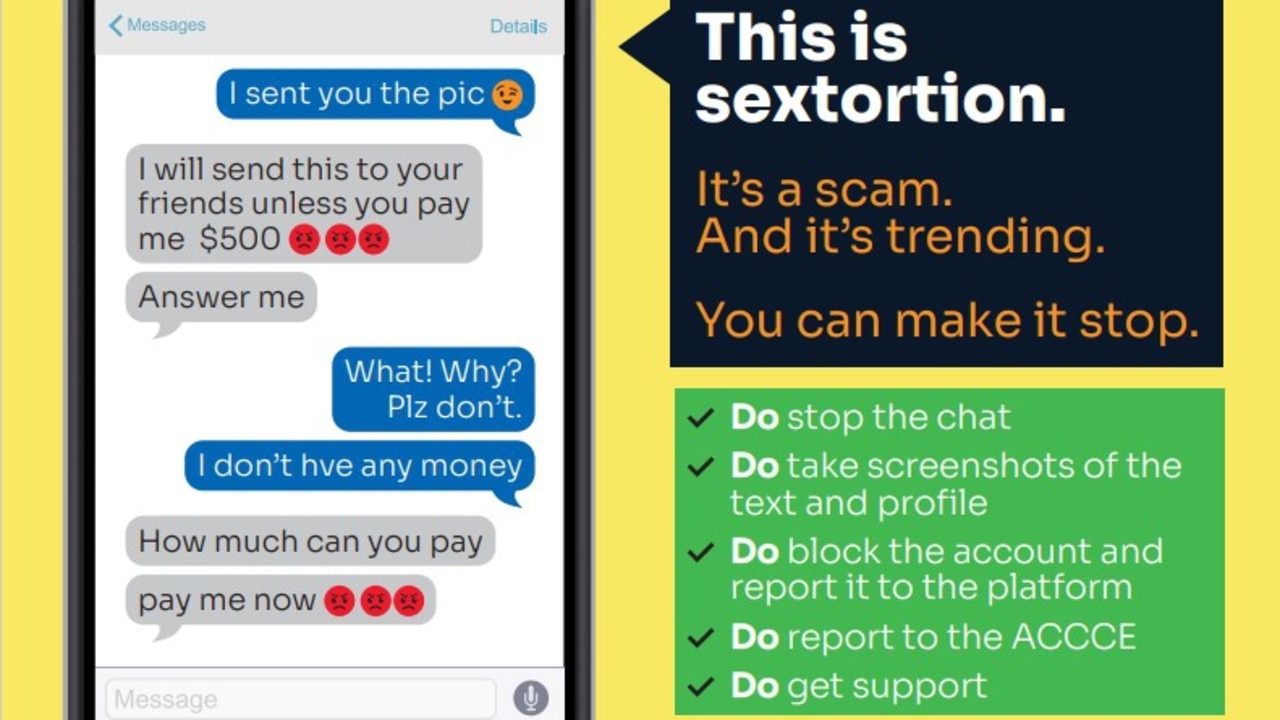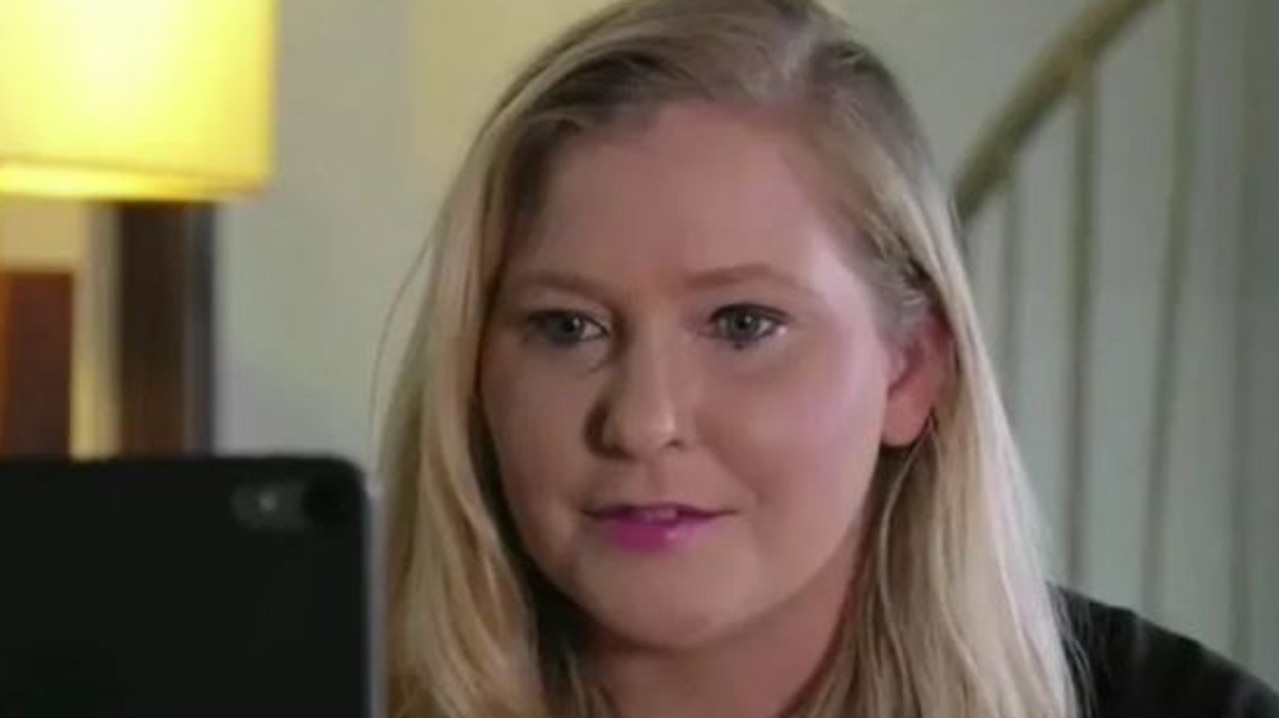Sextortion reports tripled so far this year as experts call on big tech to do more to protect young Australians
Australia is in the grips of a sextortion “epidemic” with thousands of Australian teens and young men targeted by criminal syndicates posing as attractive women to solicit sexual images used for blackmail.

National
Don't miss out on the headlines from National. Followed categories will be added to My News.
EXCLUSIVE: Australia is in the grips of a sextortion “epidemic” with thousands of Australian teens and young men targeted by criminal syndicates posing as attractive women to solicit sexual images used for blackmail.
The number of victims reporting to the nation’s online watchdog so far this year has almost tripled, with experts calling on social media companies to crack down on the rampant criminal activity.
The eSafety Commissioner received more than 1,700 reports from victims — of which nine in 10 were male — in the first three months of 2023, up from about 600 reported incidents over the same period last year.
About 70 per cent of reports came from people aged 18 to 24.
Australian eSafety Commissioner Julie Inman Grant said victims were often initially approached on Instagram or Snapchat by criminal groups “well-versed in the dark arts of manipulation and coercion”.

“Thousands of Australians are coming to us in crisis as blackmailers threaten to send their sexual images or videos to family, friends and colleagues unless they pay up,” she said.
“The cost to these young people is significant. Not only have many paid out thousands of dollars, but countless have suffered deep distress.”
Ms Inman Grant said the criminals were “ruthless” and often came back repeatedly to ask for more money.
Young people are advised to not pay their blackmailer, block the criminal account and reach out for help, with support services available for teens to facilitate conversations with their parents.
UNSW Associate Professor Michael Salter said sextortion scams predominantly operated by syndicates in Africa and south east Asia had increased exponentially to “epidemic” proportions in the past two years.

“There has been a significant shift globally … with rapid rises in cases month on month,” he said.
Prof Salter said educating young people, parents and schools about predatory behaviour was important but he questioned why social media giants were allowing their platforms to so easily be used by criminal outfits for child exploitation.
“Why can’t social media platforms tell the difference between a Nigerian crime gang and a 14-year-old girl? You would think they had very different online footprints,” he said.
Prof Salter said the impact of sextortion crimes were “extremely serious,” as blackmail had major mental health consequences and increased suicide risk, including among child victims.
“Australia is a particular target because we are a high income country situated in a convenient timezone for lower income source countries of this behaviour … for whom blackmailing a child for $50 to $100 is seen as a worthwhile undertaking,” he said.
“Boys and younger men are being targeted because they’re more likely to share a nude image of themselves with a stranger online … and less likely to seek help if blackmailed,” he said.
In December the Australian Federal Police (AFP) revealed more than 500 bank, financial services and digital currency accounts linked to sextortion syndicates targeting young Australians had been closed down.
Lifeline: 13 11 14
eSafety.gov.au/report
More Coverage
Originally published as Sextortion reports tripled so far this year as experts call on big tech to do more to protect young Australians









